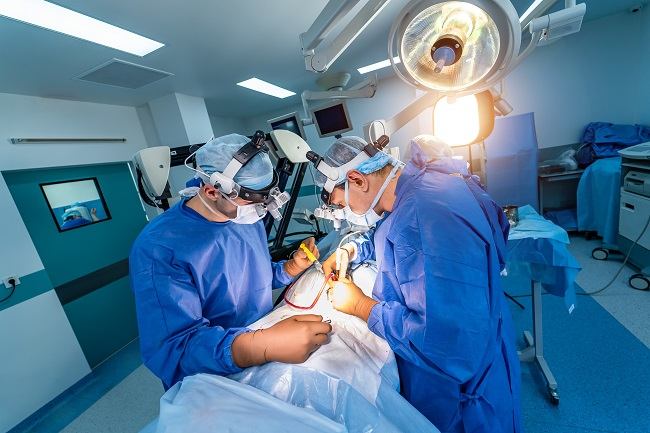Skin abscesses generally do not heal on their own. Therefore, abscess surgery is needed to treat this condition. If not treated properly, abscesses can lead to serious complications that can even be life threatening.
A skin abscess is a pus-filled lump just below the surface of the skin that can be accompanied by pain and redness of the skin. Usually, abscesses form as a result of a bacterial infection.

Abscesses can form anywhere on the body, but are more common in the armpits, pubic area, base of the spine, or around hair follicles (boils).
The pain and swelling of the abscess can make you want to squeeze and pop it yourself. However, this procedure is not recommended, as it often worsens the infection and can lead to serious complications, such as sepsis and scar tissue formation.
Abscesses rarely heal on their own, so treatment is required by a doctor. To treat abscesses, antibiotics alone are not enough. Doctors also need to perform abscess surgery to remove pus in the abscess to speed healing.
Abscess Surgery Procedure
Before surgery for a skin abscess, you may be given antibiotics to treat the infection and prevent the infection from spreading to other parts of the body.
At the beginning of the procedure, the doctor will clean and sterilize the area of the abscess, then apply a local anesthetic to the area so you don't feel pain during abscess surgery.
After numbing the area of the abscess, the doctor will make an incision in the skin above the abscess, then pus will be drained from the abscess pocket through the incision.
After all the pus is removed, the doctor will clean the abscess pocket with a sterile saline solution. Next, the abscess is left open (not sutured) and only covered with a wound dressing to absorb the remaining pus.
In deep or large abscesses, the doctor may insert gauze into the abscess cavity. The goal is that the remaining pus or blood can be absorbed cleanly, so that the tissue healing process takes place properly.
The doctor may also send a pus sample to a laboratory to find out exactly what type of microorganism is causing the infection. Usually, the whole abscess surgery process takes less than 1 hour.
Abscess Surgery Complications
In general, abscess surgery is a safe procedure. However, under certain conditions, this procedure can cause complications such as:
- Pain in the abscess scar
- Bleeding from an abscess wound
- Scar tissue formation
- Abscess relapse
Complications of abscess surgery are more at risk for smokers or people with weakened immune systems, such as people with diabetes, cancer, or obesity .
Treatment After Abscess Surgery
Recovery time after abscess surgery can vary from person to person, depending on the location and severity of the abscess.
For large or deep abscesses, a gauze bandage covering the surgical incision may need to be applied for a few days or a few weeks. If it is already wet with residual pus, the bandage needs to be changed.
If the doctor placed gauze in the abscess cavity, you will need to return to the doctor within a few days after surgery to remove the gauze.
If the wound is in good condition, the doctor will teach you how to treat the surgical wound and change the bandage at home independently. You will also be given antibiotics and pain medication.
Keep in mind, watch for signs of infection at the surgical incision, such as redness, swelling, and fever. If these signs appear, see a doctor immediately.
Written by:
dr. Sonny Seputra, M.Ked.Klin, Sp.B, FINACS
(Surgeon Specialist)









